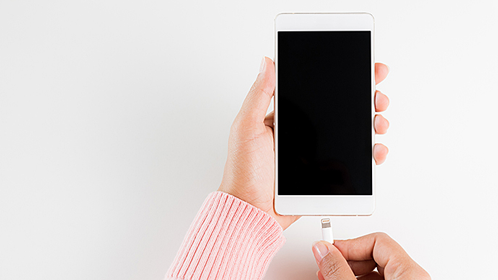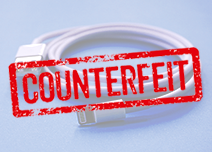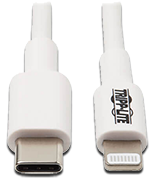
Has this ever happened to you? You connect your iPhone, iPad or iPod with Lightning connector to your MacBook’s USB‑C port to charge it or transfer data, and nothing happens. Time to buy a new USB‑C to Apple cable, right? Before you order another set of cables, you might want to read the information below.
Non-approved cables can damage your electronics
Did you know that if you use non-approved cables to sync and charge your iPhone with your MacBook Air, you could damage your equipment? The USB‑C power adapters, Apple 8‑pin Lightning connector, Lightning cable, etc. are all proprietary properties of Apple, meaning they belong to Apple. And until recently, Apple hasn’t shared manufacturing rights.
This means that you could potentially be buying a counterfeit USB to Lightning cable, which may not be adequately tested to be safe and compatible with your Apple products. They can potentially malfunction and damage your machine’s delicate circuitry. Given that an iPhone can cost well over $500, that’s a lot of money to risk just to save a few dollars by buying a non‑certified cable.

Getting what you need is easier than ever
Of course, you don’t want to damage your device, and you may be ready to shell out extra to make sure you’re buying the real thing. Here is some good news for you bargain hunters. Apple has granted third-party companies the right to manufacture certified USB‑C to Lightning and USB‑A to Lightning cables. This means you can still order new cables without fear of destroying your electronics, if you know what you’re looking for.
Be sure you’re purchasing licensed cables
True licensed USB‑C to Lightning and USB‑A to Lightning cables are MFi‑certified and boast the MFi badge on their packaging. Be sure to check the packaging and/or the cable itself to confirm MFi certification. Also, check the cable for prior use or tampering. If there is reasonable doubt, don’t buy it. Counterfeit cables can cost you a lot of money and hassle.

In addition to not ruining your phone, licensed cables have a fast charging feature and enhanced durability. You can even order longer cables up to 10 feet that give you more flexibility on where and how you can charge your standard USB device.
Start shopping for cables

Now that you know what to look for, you can skip the hassle and worry of getting a non-certified cable by contacting Tripp Lite. The company has a line of USB‑C to Lightning and USB‑A to Lightning cables that are MFi‑certified and safe. Tripp Lite also has helpful, knowledgeable staff who can help you with any of your questions.
Don’t be intimidated by the cable buying process, and don’t be afraid to spend a little more for a quality product. If you use your iPhone, iPad Air or iPad Pro for school or business, you need to make sure you have reliable cables that can handle what life throws at you. It just doesn’t make sense to settle for an inferior product that could harm your important electronics.





